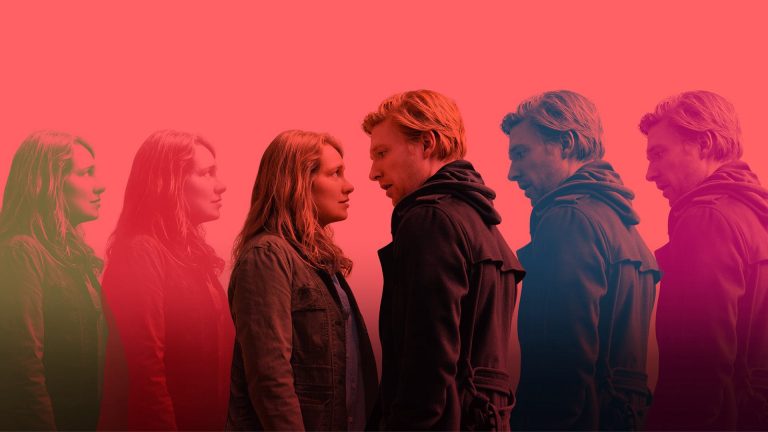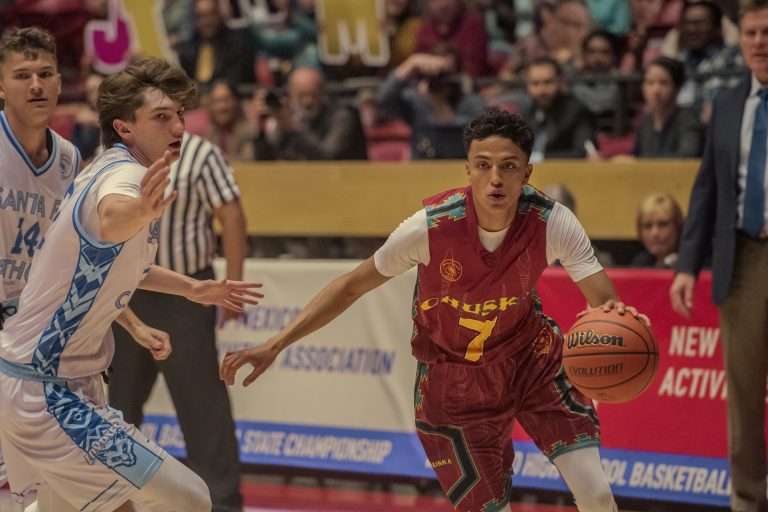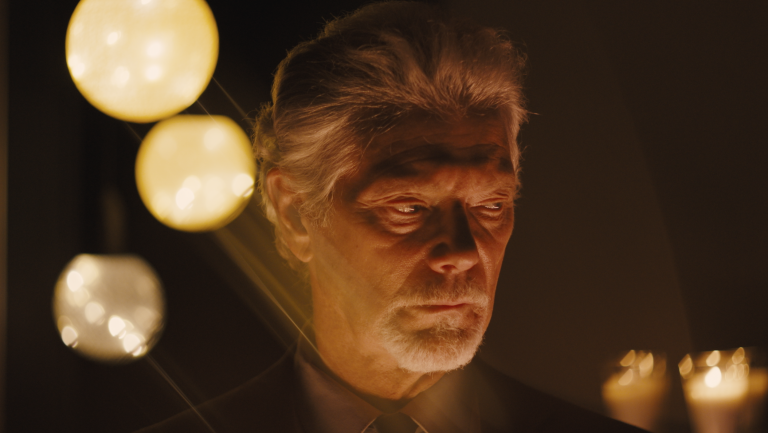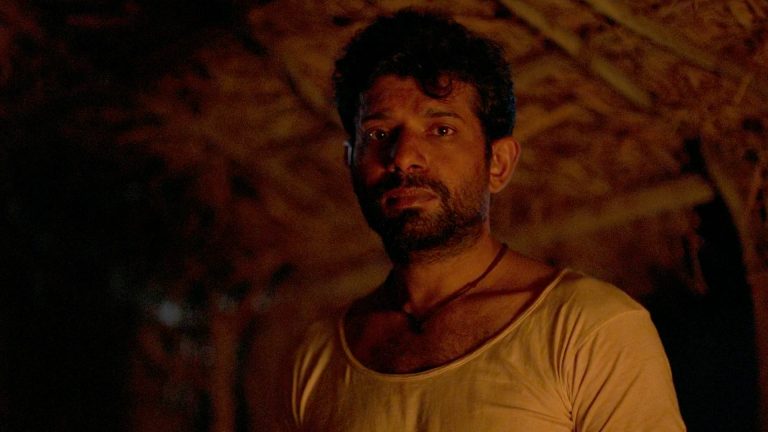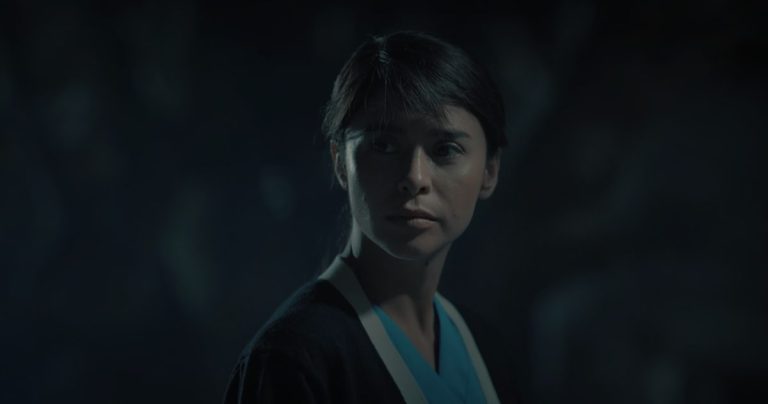The Lying Life of Adults (Season 1): Based on a novel by Elena Ferrante, ‘The Lying Life of Adults’ is a new Netflix drama series that presents the pains of growing up as an adolescent. While narrating a highly evocative coming-of-age tale, it touches upon several issues with impeccable world-building. The credit goes to the actual author as much as the show creator. The source material is used to depict a specific era from Italy’s history in an intelligent manner to illustrate the class differences and politics, among other timely aspects. While being relentlessly vibrant and chaotic in its narration style, it is backed by incredibly powerful acting performances.
The Lying Life of Adults (Season 1) Recap:
Episode 1: Beauty
Giovanna (Giordana Marengo) is a young tomboyish teen who has lived a sheltered life with her left-wing parents in Naples. She is grown up with easy access to knowledge, which makes her normal conversations also seem like scholarly dialogues from textbooks. She leads this life without any major discontent until she overhears her father, André (Alessandro Preziosi), with her mother about how she has started to become a spitting image of his sister Vittoria. He abhors this woman and has kept a distance from her for years. So, relating her looks and personality with her aunt shatters Giovanna’s self-perception and makes her question her worth.
Another factor that she has been taught is the importance of her beauty (the kind of beauty that is presentable). So, she does not want to be considered ugly by her father, who hitherto adored her for this aspect of hers. She speaks with her friends about it, who try to reassure her. She sees photographs in her father’s room where a woman’s face is purposefully blackened to leave her out. Later, she goes to her mother, Nella’s (Pino Turco) room, to try on makeup and ends up being noticed by her. Their conversation begins with her interest in makeup and soon shifts to Vittoria. Nella blames this woman for breaking André from their family.
However, Giovanna’s sudden interest in preserving her sense of beauty is because of that overheard dialogue of her father stating her unattractiveness. As a result, André and Nella decide to let her meet this woman they so clearly despise. She gets excited, realizing that she will meet this missing piece of the puzzle of her identity. Her father takes her through slum alleys and keeps reaffirming her belief in her beauty as always while noting how he rose from such filthy poverty to his current place of prestige. After he stops his car, she is told to go by herself to meet her aunt.
Giovanna walks through a community unlike what she had known Naples to be like and was comfortable with. She knocks on a door and then knocks again after no response. She is finally introduced to her aunt Vittoria (Valeria Golino) through the brash and unapologetic approach to communication and her husky voice.
Episode 2: Resemblance
During their conversation, Vittoria mentions giving a bracelet for Giovanna when she was just a baby so that she can wear it when she gets older. It belonged to her grandmother. But back at home, her parents keep denying ever having one. Vittoria drops by their place and picks her up to meet her late partner, Enzo in the cemetery. Giovanna learns how her father disapproved of their relationship and did not allow a share of their ancestral wealth since he was already married to another woman. That became the reason for their family’s eventual falling out.
Inquisitive and rebellious Giovanna keeps up with her pursuit of authenticity after Vittoria persuades her to realize the plasticity of the way of her emotionless dialogue, although filled with grand ideas. While making her observe her parents more carefully, Vittoria continues widening the boundaries of the teen’s understanding of the world. She takes her to meet Enzo’s wife and her children, who she has a surprisingly great relationship with. She gets introduced to an unpretentious way of conduct, which is not always appropriate but open and non-derivative. Over there, she also gets charmed by one of her sons – Tonino.
While spending time with her, she becomes just as open and forthright in her communication and departs from parental expectations to sound literary intelligent. She starts resembling her aunt in this manner. Later, during a family dinner with Constanza & Mariano (their family friends), she uncovers some hidden truths. Her parents are growing distant, and her mother is interested in this other man. Despite these coy exchanges, the couples continue with their bourgeois meal with a pretense of normalcy.
Episode 3: Bitterness
Due to her new realizations, Giovanna starts acting differently with her parents, which they surely take notice of. Nella also starts getting bitter against André, who masks his infidelity under his dignified motives. During another dinner with the family friends Mariano and Constanza, the teen notices her parent’s relationship with this woman. While being close friends with this couple’s daughters, she starts opening them up to a new world. However, she also senses their immaturity and finds it difficult to continue sharing everything from her life for fear of them turning it into plain gossip.
While taking these kids away for a ride, Vittoria notices a bracelet on her, the same one that she had gifted Giovanna. She sparks a conversation with these daughters about their lack of faith, which is a result of their conditioning. So, there is no idea of morality or sinning for them. On the way to the slum, she takes them to meet a priest in a church and learn about a scholar named Roberto (Giovanni Buselli). Later, they partake in a flea market and see a brawl unravel up close. Giovanna senses Vittoria’s strong sense of conviction through her interactions, which she does not let get tarnished by anyone’s opinion of her.
While Giovanna physically becomes a part of their joy and celebration, she becomes increasingly unsure of what she should believe in. Does distancing from her parents make sense with her sudden interest in her aunt’s new way of looking at the world? When she returns home after this chasm, she suddenly gets a visit from Constanza, who returns the bracelet that is supposed to be hers. It brings both her and Nella to a shared understanding of her father’s infidelity with clarity. With this new revelation, she starts getting increasingly fearless and assertive in pursuing a personality unlike what was hitherto expected of her.
Episode 4: Loneliness
Months pass by, and the secret about infidelity gets out to disintegrate both families. Constanza’s daughters join Giovanna’s rebellious strike and start becoming distant from their mother. Giovanna fails out of school during that summer and begins her journey of sexual exploration. She is resentful of her father for breaking both families apart and does not wish to continue with the façade of normalcy. Since Nella is still not forthrightly angry at him, she questions her lack of anger. Meanwhile, Constanza meets with her and gets emotional due to her distance from André, whose hurt saddens her.
During their meeting, the question about her bracelet comes into discussion, which belonged to Constanza for years, and her daughters considered it to be passed down to them. Giovanna protests returning it since it was meant for her, but André forces her to return it. Then he cries out of guilt for who he has become, but Giovanna does not forgive him. His selfish intentions about expecting this forgiveness rise to the surface, and it pains her even more.
While lying to Nella about it, she goes on a ride with Enzo’s sons. She expects it a ride of freedom, which soon shows the self-serving, filthy intentions of these men. They take her to Vittoria’s place, who demands the bracelet back. She gets heartbroken by this interaction, who was one of the few people she sought solace in. Finally, after getting distant from everyone she held dear, she meets pious Roberto in person. She gets scared by the fact that this person, despite his staunchly opposite belief system, is whom she wants to make love to.
Episode 5: Love
Giovanna finds Nella having a breezy conversation with André in their home without a hint of bitterness. She pokes her for how absurd that is and then opens up about her newfound interest in Roberto. André wants her to observe this religious fanatic only as a subject of interest and not be swayed by his magnetic personality to accept his blinding religion. While Constanza’s daughters persuade her not to be involved in Roberto, she keeps hearing praise for his irresistible appeal. Constanza soon meets Nella and tries to reconcile with her. But, the following dinner between them with their partners now openly reeks an awkward tension.
Amidst a communists parade, Giovanna gets enamored by an anti-establishment concert. It is followed by a discussion where Roberto opposes scholars like André & Mariano for pointing out the potential of religion in bringing the poor together to fight for their issues. While she initially applauds his ability to share his wisdom unapologetically, she argues back against religious fanaticism with zing and clever arguments. What she perhaps sought earlier is his unfettered confidence and a rebellion against her parents.
They later applaud her persuasive intelligence, but she cannot connect with these intellectuals the way she used to. So, despite her opposing beliefs, she goes to meet this religious scholar. However, Vittoria opposes her due to her lack of faith. She spends her night trying to navigate her belief system through messy encounters only to be united with Enzo’s daughter (Giuliana, played by Maria Vera Ratti) in the end, who is also Roberto’s partner.
Episode 6: Truth
With Giuliana, Giovanna goes on a trip to Milan to meet Roberto. She holds bitterness against Vittoria for breaking her family apart. Meanwhile, André meets Vittoria and offers her a job to work for Constanza’s family friend. She pokes fun at his lust for riches. They have a heated discussion on ethics and how they lead their lives. After a messy fight, they eventually have a peaceful interaction. In Milan, Giovanna settles in a house with the couple but is not fully ready to explore their side of the world.
She hears arguments where the difference of opinions also stems from the places they came from. That’s where she freely opines against a complete submission to God. Back at the house, Giuliana starts getting jealous of Roberto’s inclination toward Giovanna. After her restless night, she returns on a train ride with Giuliana, who feels a deep devotion toward Roberto. She suddenly notices her missing bracelet and gets worried. She even drops off at the next station to call him and realizes that she missed it. However, she gets even more bewildered after finding him with someone else.
 The Lying Life of Adults (Season 1) Ending, Explained:
The Lying Life of Adults (Season 1) Ending, Explained:
Giovanna returns to Milan to retrieve the bracelet. However, he seems only interested in a stimulating conversation to persuade her toward God. He does not mention Giuliana even once and returns the bracelet without registering what value it holds for these people. She senses his self-engrossed intellect, which isn’t far from what she despises about André and his likes. She takes the bracelet to return, but Vittoria mentions that she can have it instead of Giuliana since it was rightfully hers since birth.
Now, Vittoria is planning to move out of her house for years to work at the job that André recommended to her. She offers Giovanna advice about being mindful in her sexual encounters, for they live in a town where a woman is considered nothing more than a piece of meat. After leaving her house, she meets Enzo’s son, who is depressed since everyone close to him is moving out of the neighborhood. She hears how the men from these stories (including Enzo) get away with acting on their selfish impulses with reckless actions.
She goes to have sex with Rosario to sink her teeth into this side of hers, which by then she had only learned to be and thus considered indecent. Right afterward, she rushes out on her bike to a bus stop and gets on it with Constanza’s younger daughter. While they are about to chart another chapter of their lives beyond their confined morals, we see a torn-out flag of Italy blowing in the wind while being sustained by a fragile stick. Perhaps, it is the indication of the decaying state of what the older generation considers to be moral and noble. The newer generation is moving away from these limitations.
The Lying Life of Adults (Season 1) Review:
An invigorating adaptation of Elena Ferrante’s novel despite a messy narration
With the critical acclaim of The Lost Daughter and My Brilliant Friend, it is safe to say that Elena Ferrante is becoming quite popular in the adaptation market. However, this particular trend does not disappoint because her novels are filled with richly layered, flawed female characters and explorations that present refreshingly new worldviews. ‘The Lying of Adults’ from Netflix is another impressive addition that has a sufficient amount of emotional prowess to prove its worth as an adaptation that demands your attention.
Just looking at these three narratives, we can notice brash, individualistic women who often look beyond their immediate world to understand different parts of their personalities. They often break the perceptions of what women are supposed to be and behave like, and stand true to their unfettered imagination, which makes them stand out by their mere presence. As a result, this Netflix series benefits by the virtue of its original material, filled with subtext related to class differences, gender, sexuality, religion, and political beliefs, among others.
Does Netflix succeed with the adaptation of Elena Ferrante’s ‘The Lying Life of Adults’?
Book-to-visual media adaptations often suffer from their limited time for depicting all the themes that are present in the source material. The same happens with this Netflix series, where you feel that the adaptation is missing out on subtext. One of the reasons why Elena’s writing impacts is her ability to delve deeper into seemingly ordinary incidents through a character’s mindscape. The deeply immersive exploration seems missing in the series, especially in the beginning, where it focuses on covering the events from Giovanna’s life than unearthing her feelings about these events. It also takes some time to get used to the way of speaking directly borrowed from the book.
What keeps it away from a pitch-perfect series is the constant interruption of music in every in-between moment, which gets tiring after a point. A silent moment of contemplation (especially like its striking last frame) would have worked far better. Even cutting down scenes that are not essential to the plot or character progression and serve very little purpose beyond achieving a certain ‘vibe’ could have reduced the number of episodes and turned it into a tightly packed series. Alas, it’s a relief that, despite being on Netflix, it emerges as much more than a cheap edgy teen angst drama with zero points or purpose.
The times when the adaptation truly shines are when it subliminally hints at Giovanna’s profound realizations. One of the key differentiators between a novel and a movie is the ability to speak with words vs. audio-visual tools beyond the text. The series manages to evoke a sense of Giovanna’s bewilderment with these tools in a poignant manner. In a scene from the flea market, we see the camera pulling from a close-up all the way back to highlight her feeling of utter loneliness amidst the contrasting set of beliefs trying to win over her trust. Its refusal to indulge in direct exposition opens it up to an array of possibilities to break down what we experience.
Besides that, what makes it irresistible is its brilliant acting performances, especially Giordana Marengo and Giovanna and Valeria Golino as Vittoria. As the brazen matriarch of her life, Valeria perfectly encapsulates the magnetic appeal of Vittoria’s unfiltered personality. Giordana’s wide eyes have a way of subtly conveying a range of emotions that very few actors do. In a ‘fish out of the pond’ narrative, her ravishing performance makes the largest impact.




